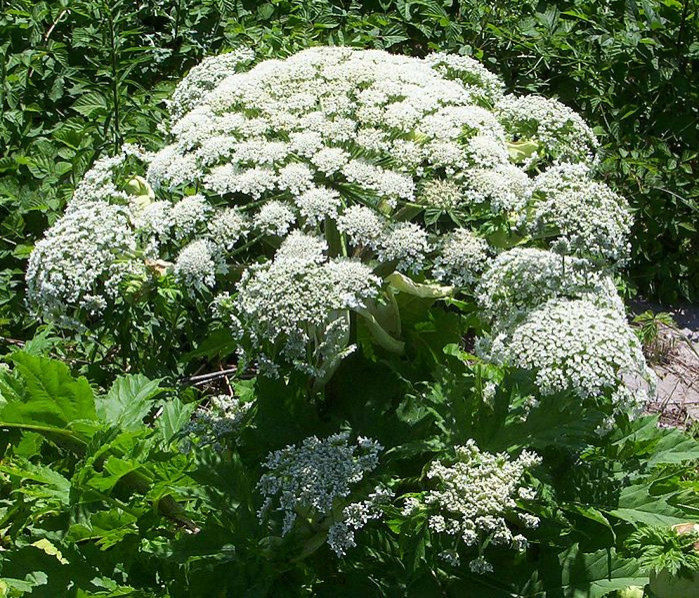Giant Hogweed Plant Causes Blindness, Skin Blisters; Heracleum Mantegazzianum Found In Indiana, Other Locations

The “giant hogweed” plant may look harmless, but it poses a serious health risk to residents of Indiana. Environmental officials claim that the plant can cause blindness and severe skin irritations (or burns) when touched.
Giant hogweed, or Heracleum mantegazzianum, is known for its thick, hairy stem and distinctive white flowers. While the plant isn’t deadly, its ability to cause blindness and skin burns at a mere touch are a significant threat to unsuspecting residents.
“We are trying to get rid of it, Philip Marshall, division director for the Indiana Department of Natural Resources Division of Entomology & Plant Pathology, told Indiana television station WISH. “It has a big flower, and there are a lot of look-alikes.”
Marshall added that the danger lies in the giant hogweed’s oil. The combination of the oil and direct sunlight can result in blistering, he told WISH. The giant hogweed’s sap is “clear and watery” but possesses toxins that can cause phytophotodermatitis, a condition that causes the skin to react to ultraviolet rays. If not treated quickly with soap and water, the affected skin can develop an itchy, burning inflammation, complete with blisters, discoloration and scarring, the Washington Post reports.
The U.S. Forest Service adds that “sap in the eyes can cause temporary or possibly permanent blindness,” although there are no recorded medical cases detailing such an incident.
While the giant hogweed warning was extended specifically to residents of Indiana, the Hoosier State isn’t the only region in which Heracleum mantegazzianum can be found. In recent years, the plant has reportedly spread throughout northeastern and northwestern America, as well as parts of Canada.
People should not attempt to remove giant hogweed with their bare hands -- workers require gloves, goggles and other protective equipment to safely eliminate the plant with herbicides, the Washington Post reports. Once the area is treated, the giant hogweed will normally succumb after three years.
© Copyright IBTimes 2025. All rights reserved.






















